Japan-easy - Season 2

Season 2

Episodes

#1 Shinjuku, please.
Learn useful phrases and cool kanji!
Today we'll learn how to ask or request something.
First watch the 15-minute program, then check out our new website.

#2 This is mine.
Today, we'll learn how to say that something is yours.
First watch the 15-minute program, then check out our new website.
Learn useful phrases and cool kanji!
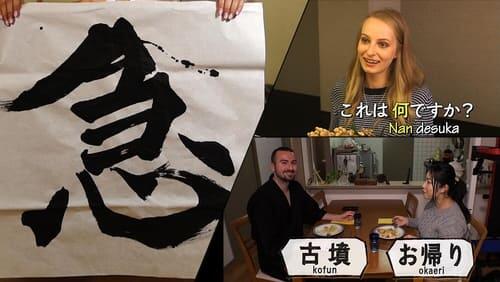
#3 What is this?
In today's program, we'll learn how to ask what something is.
We'll also learn 3 pronouns words: kore, are and sore, meaning this, that and it.
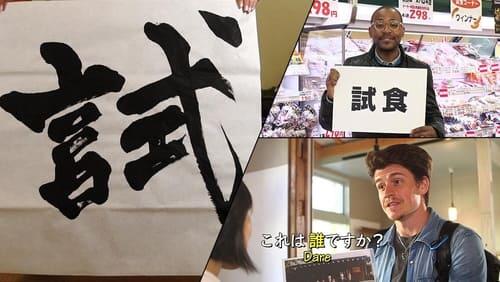
#4 Who is this?
In the program, we'll discover the various situations where we say "Who is this?" in Japanese. Let's notice that the phrase is different from when asking people in front of you and when asking when not.
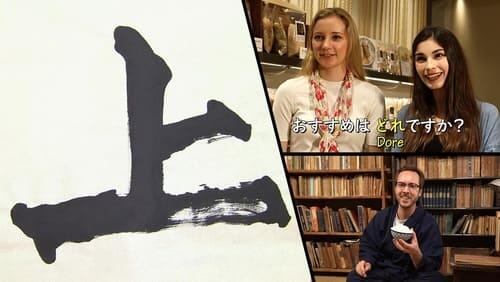
#5 Which is your recommendation?
Now let's discover how to ask for a recommendation about what to eat or buy. This one convenient expression can help you make the best decision at restaurants and when traveling or shopping.
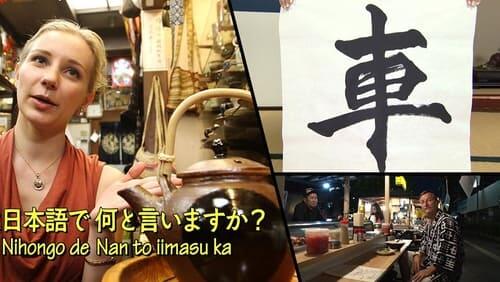
#6 How do you say this in Japanese?
Maybe you know what something is, but do you know how to say it in Japanese? Today let's learn what to say in such a situation. This is going to help you ask a lot of questions, and that's a great way to build your vocabulary.

#7 How much is this?
The word "ikura" means "How much?" In this episode, we'll learn how to ask how much something costs. This will come in handy when shopping and traveling.

#8 Where is the restroom?
"Toire" is how we say "restroom" in Japanese. In this episode, we'll learn how to ask for directions to train stations, banks, restrooms and other places.
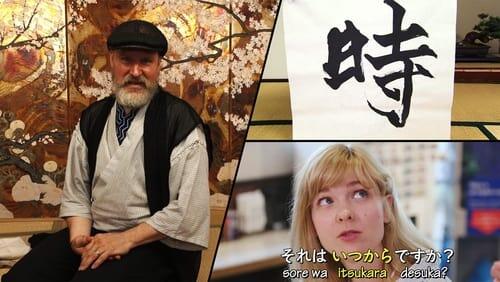
#9 When is it?
In this episode, we'll learn a question: "Sore wa itsu desuka?" We use this to ask when something is going to happen. We'll also learn about 3 kanji: 時 (time), 投 (throw) and 打 (strike / hit).
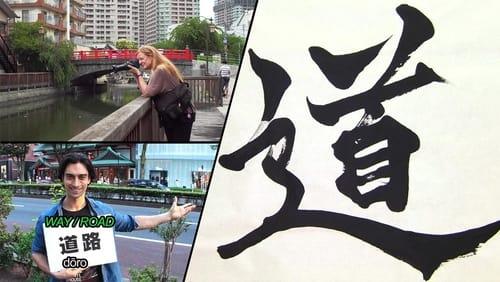
#10 Is it near here?
In this episode, we'll learn the question "Koko kara chikai desuka?" We use this to ask if something is nearby. We'll also learn 3 kanji: 道 (way), 歩 (walk) and 走 (run).
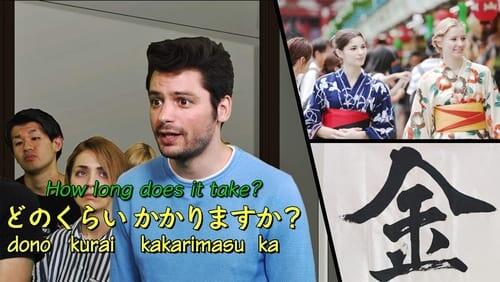
#11 How long will it take?
In this episode, we'll learn the question "Dono kurai kakarimasu ka?" We use this to ask how much time or money something takes. We'll also learn about 3 kanji: 金 (money), 近 (near) and 遠 (far).
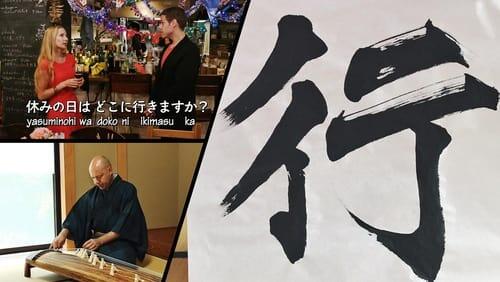
#12 Does this bus go to Shibuya?
In this episode, we'll learn the question "Kono basu wa Shibuya e ikimasu ka?" We use this to ask if a person or a vehicle goes to a certain destination. We'll also review the phrases we've learned in the past episodes. The kanji we'll learn are: 行 (go), 右 (right) and 左 (left).

#13 I want to eat ramen.
Today we'll learn how to express what we want, like when you want to eat something or when you want to ride a train. We'll also learn how to say the negative forms, like when you don't want to eat something.
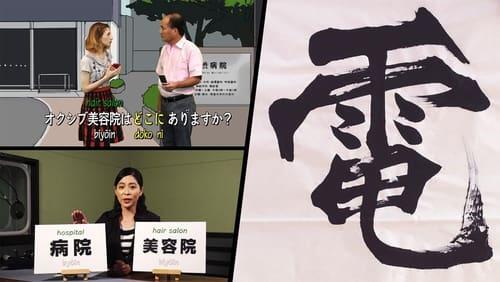
#14 Do you have miso ramen?
Today, we'll learn how to ask for what you're looking for. You can use this sentence when asking for a menu at a restaurant, or when you're looking for a particular size and color at a clothes store.
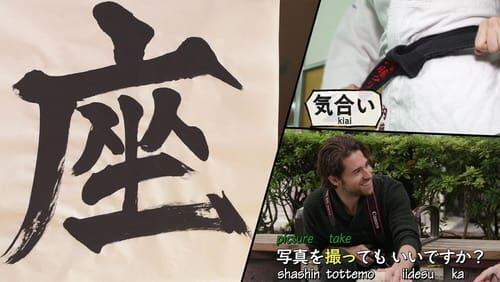
#15 May I sit down?
In this episode, we'll learn the phrase "Suwattemo iidesu ka?" It's useful when you want to ask someone for permissions. You can use it, for example, when you want to sit in an empty seat or when you want to turn on the air conditioner. And for today's kanji, we'll learn about the kanji that means "sit".

#16 Could you take my picture?
In this episode, we'll learn the phrase "Shashin o totte moraemasu ka?" This is a useful phrase when requesting someone to do something for you. You can use it, for example, when you ask someone to take your picture at a tourist spot, or when want to borrow an umbrella from a hotel. And for today's kanji, we'll learn about the kanji that means "don't" or "banned".
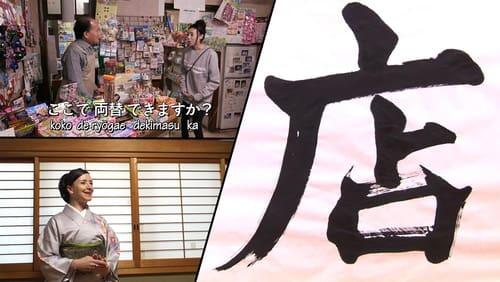
#17 Can I change money here?
In this episode, we'll learn the phrase "Kokode ryogae dekimasu ka?"
"dekimasu ka?" is a useful expression to use when you want to ask if someone can do something.
You can use it when you want to have a large serving in a restaurant or when you want to ask for something's that not on the menu. And for today's kanji, we'll learn about the character for "shop" that we often see on signs in the city.
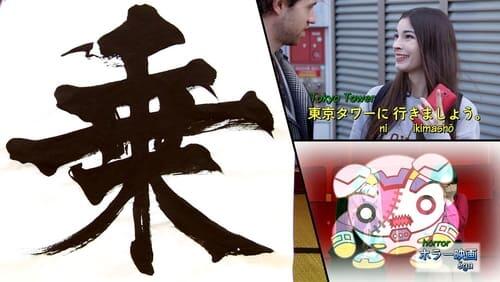
#18 Let's go to Tokyo Tower.
In this episode, we'll learn the phrase "Tokyo Tawa ni ikimasho".
This is useful when you want to invite somebody to do something, like inviting someone to go to the movies with you or to go out to dinner. For Today' s Kanji, we'll learn the character for "ride".

#19 I think it's cute.
In this episode, we'll learn the phrase "Kawaii to omoimasu". This is a convenient expression that you can use to express your impressions. Just add "to omoimasu" to an adjective like "Kawaii". In the video, pay attention to the conversation of a couple as they go shopping.
And for today's kanji, we'll learn about the character for "think".

#20 This is expensive, isn't it?
In this episode, we'll learn the phrase "Kore wa takai desu ne". "Kore wa takai desu" means "This is expensive". And when you put "ne" at the end, it becomes an expression used to seek consent or sympathy from the other person. Let's watch the video and pay attention to the change at the end of the sentences.
And for today's kanji, we'll learn about the character for "high".

#21 I like the bigger one.
In this episode, we'll learn the phrase "hō ga īdesu". You can use this phrase to choose between 2 items in front of you. For example, you can use it when shopping. You can also use it to make a request. Let's check out the video for details.
And for today's kanji, we'll learn the character for "big".

#22 I am cooking now.
In this episode, we'll learn the phrase "teimasu". It's used to express an ongoing action. For example, "ima ryōri o shiteimasu". "Ima" means "now", and "teimasu" is likes the I-N-G verb-ending. First, we start with "shiteimasu", meaning "doing". Let's check out the video, and try to use the phrase.
And for today's kanji, we'll learn the character for "make".

#23 I don't like this.
In this episode, we'll learn the phrase "ja arimasen". This is added to the end of a word to make it a negative. For example, the word for "to like" is "suki". But if we say "suki ja arimasen", it means "I don't like (something)". Let's watch the video clip to get a better understanding.
And for today's kanji, we'll learn the character for "like".

#24 I have to go home.
In this episode, we'll learn how to say "I have to ___" which is in Japanese "nakya ikemasen". Since this is the final episode of Japan-easy II, we need to say "kaera nakya ikemasen" which means "I have to go home".
And for today's kanji, we'll learn the character for "to go home".
Recently Updated Shows

NCIS
NCIS (Naval Criminal Investigative Service) is more than just an action drama. With liberal doses of humor, it's a show that focuses on the sometimes complex and always amusing dynamics of a team forced to work together in high-stress situations. Leroy Jethro Gibbs, a former Marine gunnery sergeant, whose skills as an investigator are unmatched, leads this troupe of colorful personalities. Rounding out the team are Anthony DiNozzo, an ex-homicide detective whose instincts in the field are unparalleled and whose quick wit and humorous take on life make him a team favorite; the youthful and energetic forensic specialist Abby Sciuto, a talented scientist whose sharp mind matches her Goth style and eclectic tastes; Caitlin Todd, an ex-Secret Service Agent; and Timothy McGee, an MIT graduate whose brilliance with computers far overshadows his insecurities in the field; Assisting the team is medical examiner Dr. Donald "Ducky" Mallard, who knows it all because he's seen it all, and he's not afraid to let you know. From murder and espionage to terrorism and stolen submarines, these special agents travel the globe to investigate all crimes with Navy or Marine Corps ties.

Landman
Set in the proverbial boomtowns of West Texas, Landman is a modern day tale of fortune seeking in the world of oil rigs. The series is an upstairs/downstairs story of roughnecks and wildcat billionaires fueling a boom so big, it's reshaping our climate, our economy and our geopolitics.

The Creep Tapes
Based on a collection of videotapes in the secret vault of the world's deadliest and most socially uncomfortable serial killer, who hires his victims to film him for the day under false pretenses, each episode exposes a new victim from one of the fabled 'Creep Tapes'.

America's Funniest Home Videos
ABC's longest-running primetime entertainment show, America's Funniest Home Videos, returns for season 36 this fall with the same mission -- giving families something genuinely funny to enjoy together on Sunday nights.
"AFV," the longest-running primetime entertainment show in ABC history, returns for season 36 with the same mission - to provide viewers with hysterical moments that fly by at a dizzying pace.

The Real Housewives of Potomac
Just up the river from our nation's capital lies a hidden gem—Potomac, Maryland. Its rolling hills, gated mansions, sophisticated prep schools, and exclusive country clubs all serve to keep the area invitation-only. Sprinkled throughout this community are a handful of old-line, wealthy African-American families who have historically broken racial barriers to provide a life of privilege for their children. The Real Housewives of Potomac follows the upscale lives of six intriguing, well-to-do women: Gizelle Bryant, Katie Rost, Karen Huger, Charrisse Jackson-Jordan, Robyn Dixon, and Ashley Darby, all of whom have fought for their places in this society by way of legacy or marriage. In a town where entry is granted only through class, pedigree, and lineage, how far will these ladies go to secure their spot at the top of this prestigious circle?